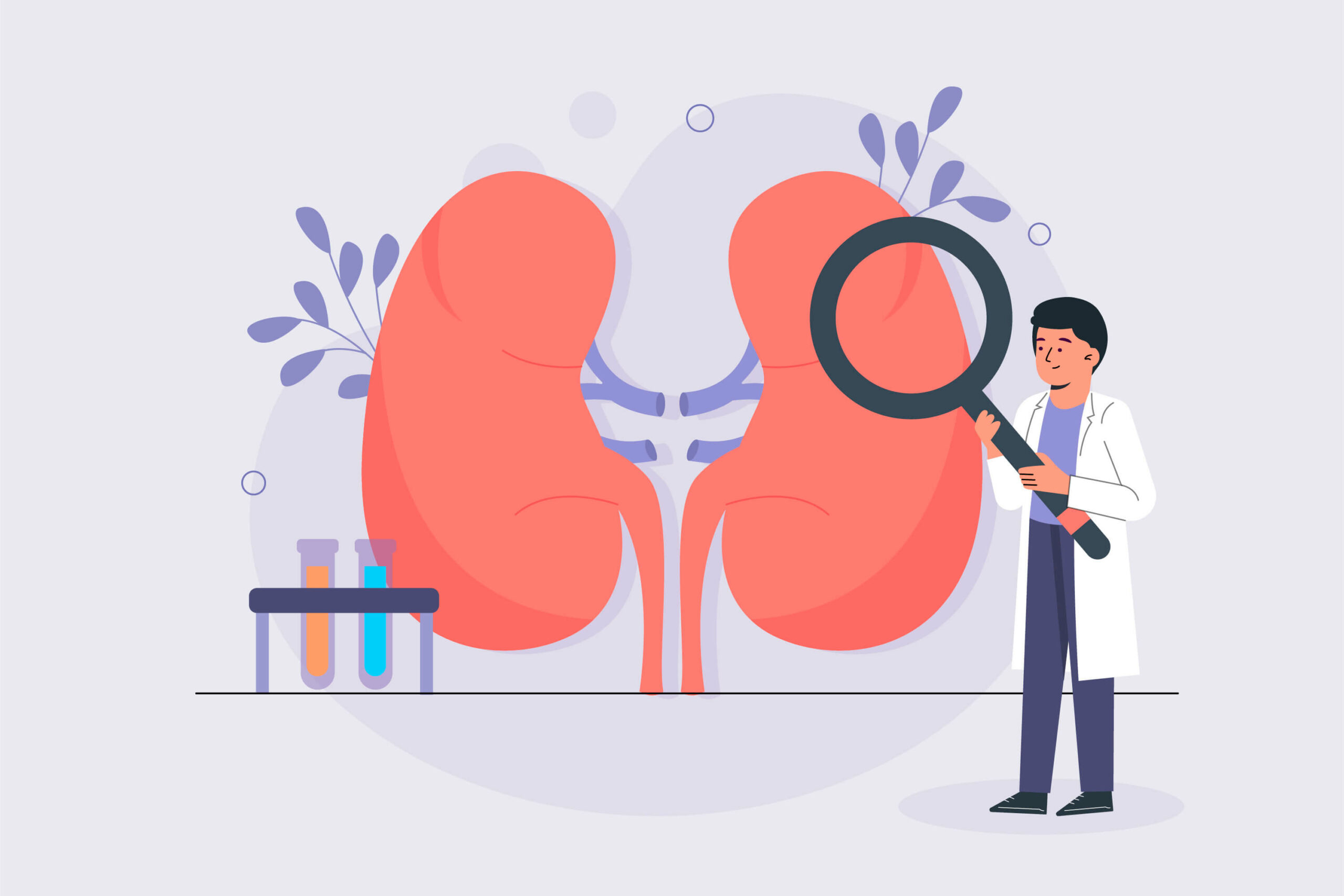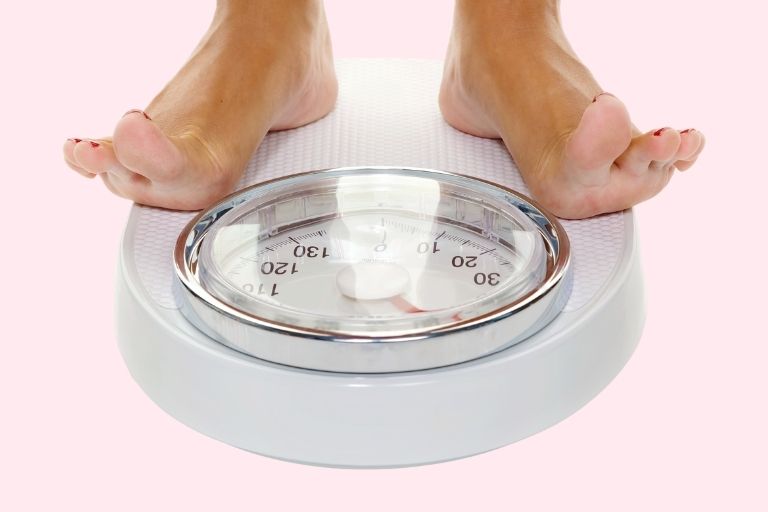If you’re somebody who’s wondering whether you should go low-carb, or if you’re currently trying to optimize your keto diet, I’m sure you’re aware that the keto diet for women is a special topic.
We’ll start with the fact that female hormones differ from males, particularly their concentrations and influence on the body (1). Women have menstrual cycles that influence their appetite. They also carry more fat than men and studies suggest that this has to do with reproductive health and childbearing (2).
What is the Keto Diet?
The ketogenic or “keto” diet is a low-carbohydrate, high-fat, and moderate-protein eating plan. This dietary practice puts your body in ketosis. This metabolic state is characterized by increased ketone levels, and your body no longer burns carbohydrates but instead its fat stores for fuel.
Studies and personal experiences show the potential of keto for achieving weight loss, increased physical and mental performance, better cholesterol, and improved blood glucose (3)(4)(5). These are just some positive effects of the keto diet on your overall health.
The 7 Benefits of the Keto Diet for Women
Is keto safe for women? Although it provides several benefits, women need to adjust their approach accordingly in such a way that supports their life changes and needs.
The last thing you’d want is to follow keto so restrictively (like how most men do it) and end up stressed out, hitting a keto weight loss plateau, not enjoying your journey at all, or worse ― poor health.
But before we dive deeper into why keto looks different for females, here’s how you ladies can benefit from it:
1. Keto diet helps women lose weight
Weight gain is a common struggle in a lot of women.
It happens for various reasons like a lack of physical activity, aging, a slow metabolism, too much stress, life changes, and menopause (due to low estradiol). Whatever the reason, decreasing carbs cause the body to burn its stored fat as its energy source.
Dr. David Ludwig, a professor in the Department of Nutrition at Harvard T.H. Chan School of Public Health, said that restricting carbohydrates may work better for long-term weight control. This was in line with a study he led. In the study, it was found that those who restricted carbs had a higher energy expenditure than those who ate more carbs (6).
2. Keto diet reverses PCOS naturally
Polycystic ovary syndrome (PCOS) affects 10% of women worldwide.
Based on a report, 40% of women with PCOS also experience depression due to the bodily changes caused by this hormonal disorder (7). Such changes include acne, excess facial and body hair, irregular periods, and weight gain.
A pilot study done on 11 women diagnosed with PCOS were asked to reduce their carb intake to 20 grams per day or lower. They did this for 24 weeks. The results showed that a low-carb keto diet (LCKD) benefits PCOS by improving weight loss and increasing one’s sensitivity to insulin (8).
3. Keto diet helps women control their diabetes
Diabetes is a disease characterized by high blood sugar. About 1 in every 9 adult women have this condition (9).
The most common types of diabetes are Type 1 Diabetes in which the pancreas produces little or no insulin, and Type 2 Diabetes in which the body’s cells can’t properly use insulin.
If you have diabetes, you should know that carbohydrates will cause your blood sugar to rise. This is true even for “good” carbs like whole grains. Reducing carbs can help with diabetes by lowering blood sugar.
Virta Health has even demonstrated the ability of nutritional ketosis to reverse Type 2 Diabetes (10).
Those with Type 1 Diabetes can also achieve better blood sugar control by reducing carbs. However, they need to be cautious and seek the guidance of a medical professional to avoid the risk of ketoacidosis (11).
4. Keto diet clears up women’s skin
If you’re prone to acne, you might be wondering how a low-carb keto diet can help.
Research done nowadays helps us appreciate the link between food and skin health. Data shows that foods with a high glycemic elevate blood glucose levels, insulin, and insulin-like growth factor-1 (IGF-1). This then increases the production of sebum which contributes to acne (12).
This explains why people who follow a low-carb diet find themselves having clearer skin. Here’s an additional benefit: Cutting down on sugar fights the aging process, also termed as glycation.
5. Keto diet manages sugar cravings
It is by breaking up with sugar-laden foods and starchy carbohydrates that your blood glucose stabilizes. Diets high in simple carbs cause rapid rises and drops in blood glucose, leading to extreme cravings and fatigue.
Low-carb diets work really well for those who are struggling with constant cravings for unhealthy food. By keeping your blood glucose levels steady, you feel more satisfied throughout the day (13).
6. Keto diet increases energy
Energy has always been a wife’s or mom’s top commodity. Whether it’s making meals for the family, cleaning the house, or keeping everyone healthy and happy, you need energy.
There’s a reason why the keto diet has been called a “high-performance” diet: Not only does it lead to weight loss, but it also increases your energy levels.
On keto, your body is not relying on an external fuel source (carbs) but rather taps into its fat stores at any time. Studies also show that ketones are a more efficient fuel than glucose (14).
7. Keto diet improves mood
Research suggests that the keto diet positively impacts mental health. The diet has been found to benefit mood disorders by balancing GABA, increasing brain power through energy-giving ketones, and lowering brain inflammation (15).
Going low-carb will also prevent moodiness and irritability resulting from blood glucose fluctuations. Here, we appreciate the reality that yes, your diet has a lot to do with your mood!
Keto Diet For Women vs. Men
Now that you know its benefits from weight loss to better mood, yes — the diet works well for females.
However, how you follow it is going to be different than your male counterpart because of these factors. Make sure you consider them while doing keto so you can get the most out of it.
Body fat
Women, in general, have a more difficult time losing weight than men because of their genetic makeup. We have about 6% to 11% more body fat.
Studies also show that estrogen reduces our ability to burn energy after eating, which promotes fat storage (16). The more muscle you have, the more calories you burn. This is why men lose weight faster.
Female hormones
Your adrenal glands (glands on top of your kidneys that produce hormones) are sensitive to changes in your diet, exercise, and stress. Being under too much stress or cutting out carbs too quickly can disrupt adrenal function which then leads to hormonal issues.
For example, some women experience irregular periods on keto or even amenorrhea. While the keto diet can actually help restore a woman’s cycle (especially in those with PCOS), following it the wrong way yields opposite effects.
Pregnancy and Breastfeeding
Women who are planning to become pregnant should carefully consider whether to continue a ketogenic diet or pause it. To begin with, there aren’t many studies on keto during pregnancy except those done on animal subjects.
There’s a concern that doing keto while pregnant can lead to ketoacidosis or starvation ketosis (17). Another concern is that embryonic organ growth might be affected (18).
Note: Pregnant women already naturally enter ketosis from time to time, especially with a diet that’s nutrient-dense as these foods are often low in carbs because they’re unprocessed. What this means is that it’s unnecessary to follow a restrictive diet like you used to.
Upping your carbs is also essential especially later in pregnancy to support delivery and breastfeeding. Keep in mind that good carbs, in particular, aid in milk production.
Menstrual period
It’s hard for a lot of women to maintain ketosis right before and during menstruation due to increased cravings. This is one of the common symptoms of premenstrual syndrome or PMS.
Realistically speaking ― just because you’re following the keto diet, doesn’t mean you no longer experience cravings throughout your journey! The best thing you can do during this time of the month is to listen to your body and give it extra care. We discuss how in the next section.
How to Make the Keto Diet Work for Women
Ready to start a keto diet in a way that gets you the best possible results? Follow the strategies below. The bottom line here is to go easy on yourself.
1. Gradually decrease carbs.
You might have heard this piece of advice: Cut carbs drastically to enter ketosis. Doing this will likely wreak havoc on your hormones. Not to mention, it will leave you feeling exhausted and unable to perform most of your daily tasks.
Doing keto slowly gives your body time to adjust to your new macros. If you haven’t figured them out yet, you can use a keto calculator that gets the right keto macros for women.
A realistic plan would be to limit carbs to 150 grams per day instead of 50 grams. Do this for the first week on keto. Then lower it to 100 grams in your second week until you can comfortably limit yourself to 50 grams or less.
2. Avoid over-exercising.
Are you pushing yourself too hard with your workouts? We ladies can be guilty of overtraining to lose weight. Aside from restricting carbs too quickly, too much exercise can stop your periods.
Make exercise an opportunity to get blood flowing throughout your body, reduce stress, and bask in the beauty of nature ― it should not be a form of punishment.
3. Have keto snacks on hand.
With so many things to do or if you’re having your period, cravings can strike any time. This means you have to be prepared to avoid grabbing something convenient but sugar-laden.
Feed those random cravings smartly by stocking your pantry with low-carb, high-fat snacks. Keep a few in your office bag as well.
Examples of keto-friendly snacks include pork rinds, hard-boiled eggs, and macadamia nuts. See the complete list including our definition of a good keto snack in this article.
4. Increase your fat intake.
While keeping carbs low, don’t forget to eat more fat. Not eating enough fat is one of the most common mistakes people make on keto.
Fat is not only highly satiating, but it also helps maintain proper hormone production. Not to mention, fat does an excellent job of enhancing the flavor of your keto meals.
Here are ways to add more fats to your diet: Cook with it, blend it into your coffee, or use it as an ingredient for fat bombs. Feel free to check out our chocolate peanut butter fat bombs recipe!
It’s important to approach dietary fat consumption the right way by choosing healthful fats. Healthy unsaturated fats include avocados, nuts, seeds, oily fish, and olives.
5. Do carb cycling.
Carb cycling or “carb refeeding” involves increasing your carb intake for 1-3 days each week. Doing this may seem counterproductive to some, but it actually benefits you in the following ways:
- Breaks a fitness plateau on keto
- Relieves the stress of restrictive dieting
- Helps maintain your motivation to stick to the diet long-term
- Gives you extra fuel on busy and stressful days
- Lets you enjoy bonding time with friends
Healthy carb-up options include sweet potatoes, apples, bananas, and gluten-free bread.
6. Incorporate intermittent fasting into your diet.
Combining intermittent fasting and keto is one of the keys to success on the diet. For those who don’t know what intermittent fasting (IF) is: It’s an eating practice in which you switch between eating and fasting.
If you’ve been constantly eating, intermittent fasting allows your digestive system to rest. It promotes autophagy, a vital process where your body gets rid of damaged cells and regenerates itself (19).
Intermittent fasting is also an effective tool for entering ketosis faster (if you’ve got kicked out) and overcoming a plateau.
7. Always choose micronutrient-dense foods.
Whatever you’re eating on keto, make sure that your foods are rich in micronutrients.
Vitamins and essential trace elements are important for hormonal balance, energy, and your overall performance as a woman (20)(21). Being low on nutrients can also trigger unhealthy food cravings, causing you to overeat.
Pay attention to micronutrients like sodium, potassium, magnesium, calcium, iron, B vitamins, vitamin C, and vitamin A. It’s highly recommended that you get these micronutrients from whole foods.
However, if certain keto-friendly foods aren’t available, consider taking supplements.
8. Do resistance training.
Earlier, we mentioned how women pack more body fat than men and how this affects their metabolism.
Weight training or resistance training while on keto helps you to burn more fat. According to a study, this also reduces your likelihood to regain weight and lets you function optimally as you age (22).
Here’s a tip: To get a boost in strength while resistance training, consume your daily carbs around your workout times.
9. Monitor your ketone levels and how you feel.
Ketosis has different levels and more ketones don’t necessarily mean you’re better off. In my personal experience, I’ve found that being in light nutritional ketosis (1.5 to 4.0 mmol/L) helps me feel my best. A reading that’s higher than that makes me feel weak and unmotivated.
It may or may not be the same for you, which is why you should test for ketosis. Record your measurements in a notebook and also write down how you feel. Do you feel fine? Hungry? Energetic? Tired? Calm? Cranky?
Final Thoughts
As you’ve read, a keto diet plan for women looks different —but it isn’t complicated. Keto is, without any doubt, one of the best dietary approaches for women. It normalizes blood glucose, reverses PCOS, improves the skin, and more.
But before trying the diet, make sure you know how to use it according to your uniqueness as a woman. Consider factors such as your metabolism, hormones, period, and pregnancy status.
Use the tips I shared above to help your body adapt to the keto diet more easily and maximize your results. I hope you learned from this article.
Curious about the keto diet for men this time? If so, check out our post on keto and testosterone.
References:
- Lauretta R, Sansone M, Sansone A et al. Gender in Endocrine Diseases: Role of Sex Gonadal Hormones. 2018 October 21
- Blaak E. Gender differences in fat metabolism. 2001 November
- Dashti H, Mathew T, Hussein T et al. Long-term effects of a ketogenic diet in obese patients. 2004
- Hernandez A, Hernandez C, Campos K et al. A Ketogenic Diet Improves Cognition and Has Biochemical Effects in Prefrontal Cortex That Are Dissociable From Hippocampus. 2018 December 03
- Harvey K, Holcomb L, Kolwicz S. Ketogenic Diets and Exercise Performance. 2019 September 26
- Harvard T.H Chan. Effects of varying amounts of carbohydrate on metabolism after weight loss. 2018 November 27
- Firstpost. PCOS Awareness Month 2020 dedicated to a common hormonal disorder that affects 10% of women worldwide. 2020 September 01
- Mavropoulos J, Yancy W, Hepburn J et al. The effects of a low-carbohydrate, ketogenic diet on the polycystic ovary syndrome: A pilot study. 2005 December 16
- Office on Women’s Health. Diabetes
- Virta Health. Can Type 2 Diabetes be Reversed?
- Bolla A, Caretto A, Laurenzi A et al. Low-Carb and Ketogenic Diets in Type 1 and Type 2 Diabetes. 2019 April 26
- Katta R, Desai S. Diet and Dermatology. 2014 July
- Watts M. How Does Low Carb Work? 2019 January 15
- Price A, Zhang Y, Croniger C et al. Oxidative metabolism: glucose versus ketones. 2013
- Watts M. Ketogenic diet and mental health. 2019 January 15
- ScienceDaily. Why Do Women Store Fat Differently From Men? 2009 March 04
- Sibai B, Viteri O. Diabetic ketoacidosis in pregnancy. 2014 January
- Sussman D, Eede M, Wong M et al. Effects of a ketogenic diet during pregnancy on embryonic growth in the mouse. 2013 May 08
- Bagherniya M, Butler A, Barreto G et al. The effect of fasting or calorie restriction on autophagy induction: A review of the literature. 2018 August 30
- Janjuha R, Bunn D, Hayhoe R et al. Effects of Dietary or Supplementary Micronutrients on Sex Hormones and IGF-1 in Middle and Older Age: A Systematic Review and Meta-Analysis. 2020 May 18
- Shenkin A. Micronutrients in health and disease. 2006 September
- Jabekk P, Moe I, Meen H et al. Resistance training in overweight women on a ketogenic diet conserved lean body mass while reducing body fat. 2010 March 02



